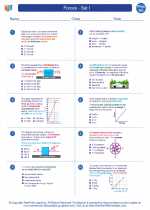What is Dark Energy?
Dark energy is a hypothetical form of energy that is thought to permeate all of space and drive the accelerated expansion of the universe. It is believed to constitute about 68% of the total energy content of the universe.
Discovery and Evidence
The existence of dark energy was inferred from observations of distant supernovae, which revealed that the universe's expansion is accelerating. This finding was supported by other cosmological observations, such as the cosmic microwave background radiation and the large-scale distribution of galaxies.
Properties of Dark Energy
Dark energy is characterized by its negative pressure, which leads to the repulsive gravitational effect that causes the expansion of the universe to accelerate. Despite its dominant role in the universe's energy budget, dark energy's fundamental properties and nature remain largely unknown.
Current Understanding
While dark energy remains a profound mystery, it is currently the leading explanation for the observed acceleration of the universe. The nature of dark energy is a major focus of research in both theoretical and observational cosmology.
Study Guide
- Learn about the history of cosmology and the expansion of the universe.
- Understand the concept of gravitational forces and their effects on the universe.
- Study the properties of light and its use in astronomical observations.
- Read about the discoveries and observations that led to the proposal of dark energy.
- Explore the current theories and research related to dark energy and the future of cosmology.
◂Physics Worksheets and Study Guides High School. Forces - Set I

 Worksheet/Answer key
Worksheet/Answer key
 Worksheet/Answer key
Worksheet/Answer key
 Worksheet/Answer key
Worksheet/Answer key
